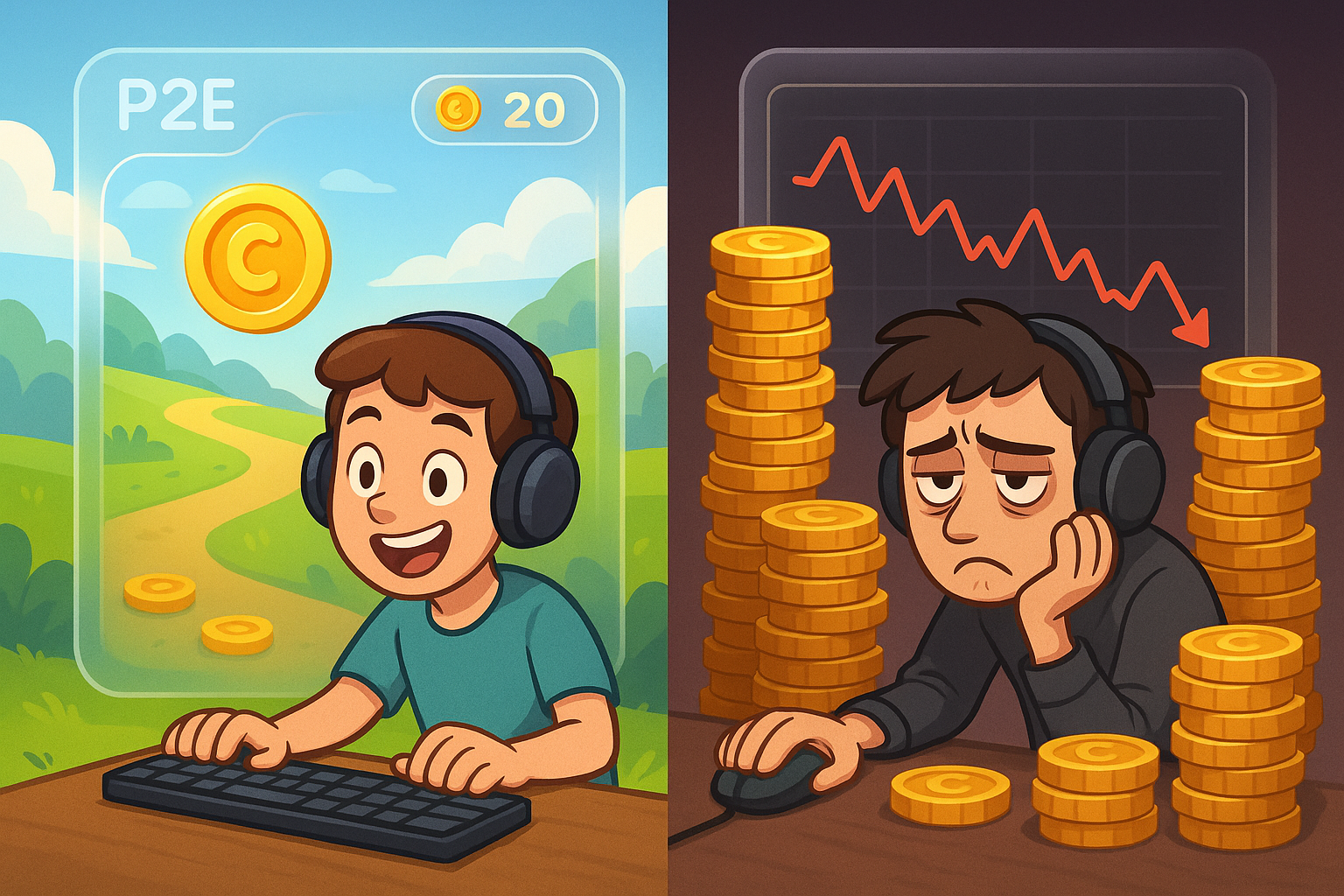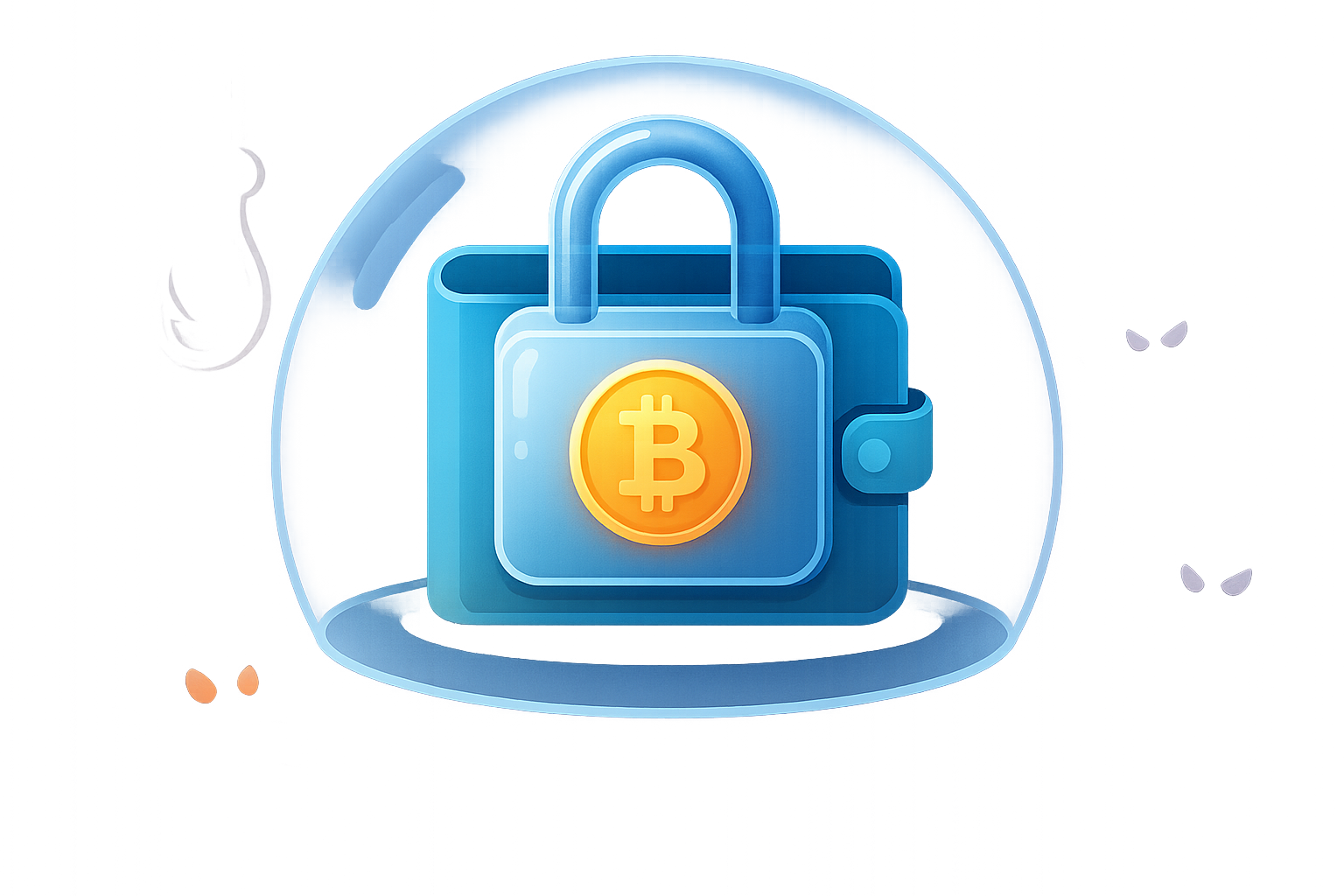Navigating the Metaverse: Avoiding Common Pitfalls as a New P2E Gamer
The world of Play-to-Earn (P2E) gaming has exploded, offering a revolutionary blend of entertainment and economic opportunity. For many, it represents an exciting frontier where passion for gaming can translate into tangible rewards. However, like any emerging landscape, it's also fraught with potential pitfalls for the uninitiated. New P2E gamers, often fueled by enthusiasm and the allure of quick gains, frequently fall prey to common mistakes that can lead to disappointment, financial loss, or simply a less enjoyable experience. This guide is designed to arm you with the knowledge needed to sidestep these common traps, ensuring your journey into the P2E metaverse is as rewarding and smooth as possible. Understanding these pitfalls from the outset can save you a significant amount of time, effort, and capital, allowing you to truly thrive in this dynamic ecosystem.

Mistake 1: Skipping Comprehensive Research – The "Dive In Blind" Approach
Perhaps the most critical error a new P2E gamer can make is to jump into a game without thorough due diligence. The P2E space is a wild west, teeming with legitimate projects, but also rife with scams, poorly designed games, and unsustainable economic models. Many new players are drawn in by flashy marketing, influencer hype, or the promise of incredible returns, without truly understanding the underlying project. They might invest their hard-earned money based solely on a trending tweet or a friend's recommendation, only to find themselves victims of a "rug pull" – where developers abandon a project after raising funds – or stuck in a game with no real player base or economic viability.
Solution: Become a P2E Detective.
Before investing a single penny or an hour of your time, delve deep into the project.
- Team: Who are the developers? Do they have a track record? Are they doxxed (publicly identified)? A transparent and experienced team is a good sign.
- Whitepaper/Litepaper: This document is the blueprint of the project. Does it clearly outline the game mechanics, tokenomics, roadmap, and vision? Is it well-written and logical? Be wary of vague or overly ambitious claims without substance.
- Community: Join their Discord, Telegram, or Twitter. How active and engaged is the community? Are genuine questions being answered by the team? A strong, supportive community is a good indicator of a healthy project.
- Gameplay & Economy: Is there an actual game to play, or is it just a promise? Is the gameplay engaging beyond the earning aspect? Critically analyze the tokenomics. How are tokens earned, spent, and burned? Is there a clear utility for the tokens within the game ecosystem, or are they purely speculative? A robust in-game economy that balances rewards with spending, and new player onboarding with existing player retention, is key.

Mistake 2: Chasing Hype and Succumbing to FOMO (Fear Of Missing Out)
The P2E market can be incredibly volatile. One day a game's token might be soaring, fueled by hype and speculative trading, and the next it could plummet. New players often fall victim to FOMO, rushing to buy tokens or NFTs at their peak, fearing they'll miss out on massive gains. This usually results in buying high and being forced to sell low when the inevitable correction or market downturn occurs. The allure of "get rich quick" schemes is strong in nascent markets, but they rarely pan out.
Solution: Patience is a Virtue, Fundamentals are King.
Resist the urge to chase pumps. Focus on long-term value and sustainable projects.
- Research, Not Hype: Refer back to Mistake 1. Your decisions should be based on solid research, not fleeting trends.
- Understand Cycles: All markets, especially crypto, move in cycles. There will always be new opportunities.
- Risk Management: Never invest money you can't afford to lose. If a project seems too good to be true, it probably is.

Mistake 3: Ignoring the Intricacies of Tokenomics
Tokenomics are the economic backbone of any P2E game. Many new players overlook this crucial aspect, focusing solely on the current token price or the apparent ease of earning. However, a game's tokenomics dictate its long-term sustainability. Projects with inflationary models, where too many tokens are printed without sufficient utility or burning mechanisms, are destined for collapse as the token value continuously depreciates. Conversely, well-designed tokenomics can create a thriving, self-sustaining ecosystem.
Solution: Become an Economist for Your Game.
- Supply and Demand: Understand the total supply of tokens, how new tokens are minted, and how existing tokens are removed from circulation (burned).
- Utility: What can you do with the tokens? Are they used for in-game purchases, upgrades, staking, governance, or a combination? The more utility, the better.
- Inflation/Deflation: Is the game designed to be inflationary (more tokens minted than burned) or deflationary (more burned than minted)? While some inflation can incentivize new players, runaway inflation is a red flag. Look for mechanisms that create a healthy balance, often involving spending tokens to play, upgrade, or participate in governance.
- Vesting Schedules: For project tokens, check if founders and early investors have vesting schedules. This prevents large token dumps that can crash the price.

Mistake 4: Over-investing and Lack of Diversification
The excitement of P2E can lead new gamers to pour all their available funds into a single game or project, hoping for massive returns. This "all eggs in one basket" strategy is incredibly risky. The P2E market is volatile, and even well-researched projects can fail due to unforeseen circumstances, market shifts, or developer missteps. Losing your entire investment in one go can be a devastating setback.
Solution: Practice Smart Financial Management.
- Start Small: Begin with a modest investment that you're comfortable losing. This allows you to learn the ropes without significant financial pressure.
- Diversify: As you gain experience, consider spreading your investments across multiple promising P2E games or even different sectors within the broader crypto space. This mitigates risk. If one project underperforms, others might still do well.
- Risk Capital Only: Only invest "risk capital" – money that you don't need for essential living expenses. P2E is an investment, not a guaranteed income stream.

Mistake 5: Neglecting Gameplay and Enjoyment – The Grind for Profit Only
While "Play-to-Earn" emphasizes earning, many new players quickly forget the "Play" aspect. They focus purely on optimizing their income, turning gaming into a monotonous chore rather than an enjoyable pastime. This can lead to burnout, disinterest, and ultimately, abandoning the game even if it's still profitable. If you're not enjoying the game, the "earn" part becomes unsustainable and less motivating.
Solution: Find Games You Actually Love Playing.
- Prioritize Fun: Seek out games that genuinely appeal to your gaming preferences, even if the initial earnings potential isn't the absolute highest.
- Sustainable Engagement: If you enjoy the gameplay, you're more likely to stick with the game through market fluctuations and minor economic downturns, allowing you to benefit from long-term growth.
- Community Interaction: Engage with other players. A strong in-game community can enhance the fun and provide valuable insights.

Mistake 6: Underestimating Security Risks and Blockchain Basics
New P2E gamers, especially those new to cryptocurrency, often overlook the fundamental security aspects of interacting with blockchain applications. Phishing scams, compromised private keys, and insecure wallet practices are rampant. Losing access to your wallet means losing all your NFTs and tokens, often irrevocably.
Solution: Become Your Own Security Guard.
- Wallet Security is Paramount: Use a reputable, non-custodial wallet (like MetaMask, Trust Wallet) and never share your seed phrase or private keys with anyone. Write it down offline and store it securely.
- Beware of Phishing: Always double-check URLs. Scammers often create fake websites that look identical to legitimate game sites or marketplaces. Bookmark official links.
- Revoke Permissions: Regularly check and revoke smart contract permissions for dApps you no longer use or trust, especially if you've interacted with many different platforms.
- Hardware Wallets: For larger investments, consider a hardware wallet (e.g., Ledger, Trezor) for enhanced security.
- Understand Transactions: Always review the details of any transaction before confirming it. Know what permissions you are granting.

Mistake 7: Failing to Adapt to Market Dynamics and Game Changes
The P2E landscape is incredibly dynamic. Game mechanics can change, tokenomics might be adjusted, and the broader crypto market experiences constant shifts. New players who cling rigidly to initial strategies without adapting will quickly find themselves left behind or on the losing end. What worked yesterday might not work today, and what's profitable now might not be in a month.
Solution: Stay Agile and Informed.
- Follow Official Channels: Keep up-to-date with official announcements from the game developers. Be aware of upcoming patches, economic adjustments, or new features.
- Community Insights: Participate in discussions within the game's community. Other experienced players can offer valuable perspectives and early warnings about changes.
- Market Analysis: Keep an eye on the broader crypto market trends. Bitcoin and Ethereum movements often influence altcoin and NFT markets.
- Re-evaluate Strategy: Periodically review your P2E strategy. Is your current approach still viable? Are there better opportunities or risks you need to address? Be prepared to pivot.

Conclusion
Entering the Play-to-Earn world is an exciting adventure, full of potential for both fun and financial growth. However, treating it as a get-rich-quick scheme or diving in without proper preparation is a recipe for disaster. By diligently researching projects, resisting the urge to chase hype, understanding the economic models, managing your financial risks, prioritizing enjoyment, safeguarding your digital assets, and remaining adaptable, you can significantly enhance your chances of success and build a truly rewarding P2E journey. The metaverse awaits, and with these guidelines in hand, you're well-equipped to navigate its complexities and emerge victorious. Happy gaming!

